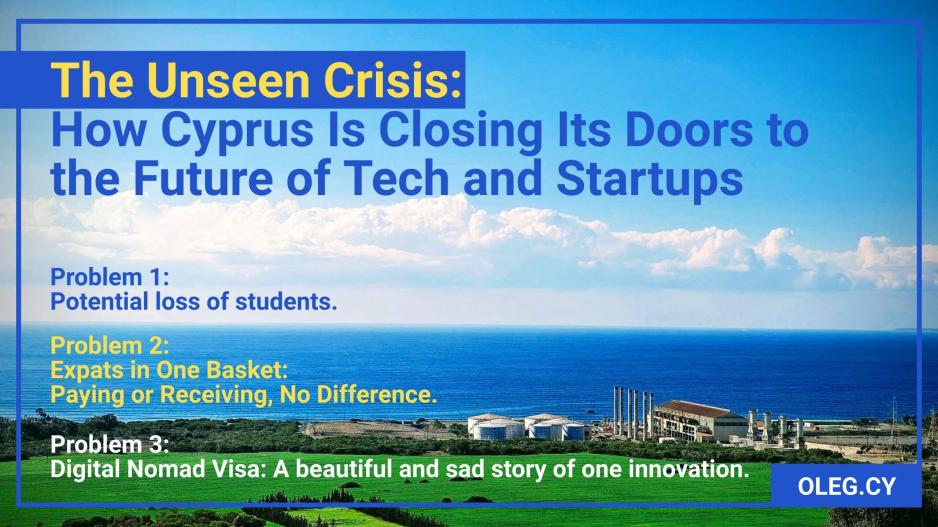The Unseen Crisis in Cyprus Impacting Tech And Startups
Cyprus Finds Itself At A Crossroad
In recent times, a disheartening shift has been experienced in Cyprus, as the notion appears to gradually be shutting its doors to the promising future of technology and startups. The rise of new regulations and legal issues are creating unsuspected hurdles for students, freelancers, digital nomads and emerging entrepreneurs, posing a threat to the innovative projects and investment that could potentially flourish on the island.
For years now, Cyprus has been hailed as a haven for individuals seeing a vibrant environment to foster technological advancements and give way to their startup ventures. Unfortunately, this allure is slowly but surely diminishing, with governmental bodies introducing regulations that complicate matters or even outright restrict the rights of those who operate outside the confines of large corporations, leading small businesses and startups at a massive disadvantage that may not be avoidable.
The challenges confronting Cyprus on its journey towards technological excellence and startup prosperity are becoming increasingly evident. There are currently three prominent challenges that are shadowing over Cyprus’s future in the tech and startup landscape.
Potential Loss of Students
In the landscape of Cyprus’s education sector, there’s a rising threat that will disrupt the seamless flow of international students into its private universities. The culprit is the newly introduced ‘talent’ citizenship law, slated to take effect in 2024. Previously, the process of transitioning from dependent to student permits was a routine matter handled by university lawyers. However, recent changes have added layers of complexity, potentially discouraging expat families from choosing Cyprus for their children’s education.
Expats in One Basket: Paying or Receiving, No Difference
Cyprus’s evolving stance on digital nomads, freelancers and startup founders from third countries poses a threat to the growth of its tech and startup sectors. The ripple effect is felt as tax-paying expats, including business owners and remote company employees, face a surge in residency renewal rejections. Once a straightforward process, the renewal now often ends with a letter giving individuals 30 days to leave the country, disrupting the lives of those who have contributed significantly to Cyprus’s economy, which could jeopardise the island’s appeal to the global workforce.
Digital Nomad Visa: A Beautiful & Sad Story of Innovation
The narrative surrounding Cyprus’s Digital Nomad Visa has long been one of missteps and miscommunication. The visa, whose introduction was much anticipated, encountered challenges right from its inception. Issues with the online booking system, initially designed to streamline the application process, quickly spiralled out of control. Lawyers, agents and software bots seized available slots, leaving ordinary individuals stranded. The subsequent surge in demand and attempts to rectify the situation, including an increase in the visa limit, only exposed deeper problems. Reports of abuse, sale of appointments, and the danger of corruption painted a bleak picture of an innovation overshadowed by administrative hurdles.
Cyprus stands at crucial crossroads and it is imperative for the government to reevaluate its approach and consider the long-term consequences of these restrictive measures. To maintain its status as a hub for innovation and entrepreneurship, Cyprus must foster an environment that welcomes diverse talents, encourages startups, and supports the growth of the technology sector.
The hope is that the government will look beyond short-term regulations, and proceed to prioritise a future that embraces the dynamic potential of students, freelancers, digital nomads and emerging entrepreneurs. By addressing the outlined challenges and fostering a conducive environment, Cyprus can continue to be a thriving destination for innovation and technological progress for anyone who is bold enough to dream.






